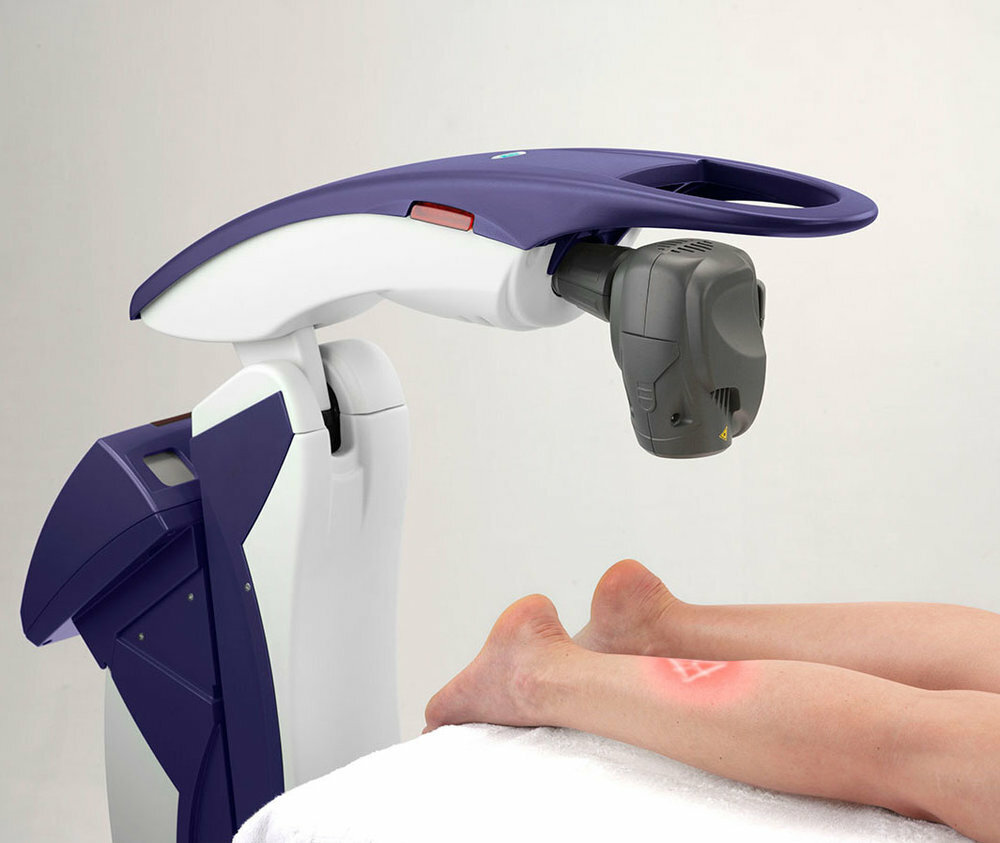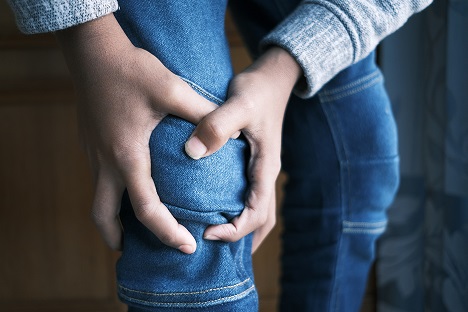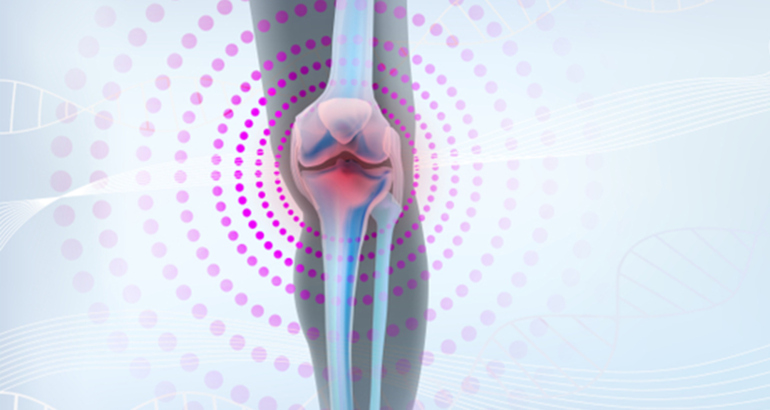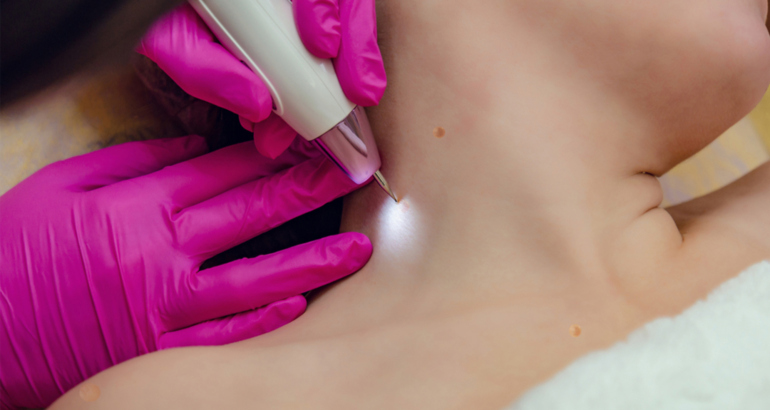 Non Surgical Knee Pain Treatment
Non Surgical Knee Pain Treatment
Knee pain is one of the most common issues we have seen developing as we age. Knee pain can have various causes, from acute injuries to chronic conditions.
What are the Knee pain causes?
Some common causes of knee pain include:
- Muscle Strains and Ligament Sprains: Overstretching or tearing of muscles or ligaments around the knee can lead to pain and swelling.
- Tendonitis: Inflammation of the tendons that attach muscles to the knee can cause pain, especially with movement.
- Meniscus Tears: The menisci are C-shaped cartilage pads in the knee that can tear due to sudden twisting or degeneration over time.
- Patellofemoral Pain Syndrome (Runner’s Knee): This condition involves pain around the kneecap and is often seen in athletes or individuals with improper knee tracking.
- Osteoarthritis: A degenerative joint disease that can cause knee pain, stiffness, and reduced range of motion, especially in older individuals.
- Rheumatoid Arthritis: An autoimmune condition that can lead to inflammation and pain in multiple joints, including the knee.
- Gout: A form of arthritis caused by the buildup of uric acid crystals in the joint, leading to sudden and severe knee pain.
- Bursitis: Inflammation of the bursae (fluid-filled sacs) around the knee joint can cause localized pain and swelling.
- Iliotibial Band Syndrome (ITBS): ITBS is common among runners and involves pain on the outer side of the knee due to irritation of the iliotibial band.
- Knee Fractures: Traumatic injuries can cause bone fractures around the knee, leading to severe pain and difficulty bearing weight.
- Ligament Injuries: Complete or partial tears of the anterior cruciate ligament (ACL), posterior cruciate ligament (PCL), or collateral ligaments can cause instability and pain.
- Plica Syndrome: Inflammation of the plica, a fold of synovial tissue in the knee joint, can lead to pain and clicking sensations.
- Osgood-Schlatter Disease: A condition commonly seen in adolescents where the growth plate in the shinbone becomes inflamed, causing knee pain.
- Baker’s Cyst: A fluid-filled cyst behind the knee can cause pain and swelling.
What are the options for Knee pain relief?
The treatment options for knee pain depend on the underlying cause and severity. Here are some common treatment approaches:
- Rest and Activity Modification: To allow your knee to heal properly, avoiding activities that may aggravate the pain is important. Adjusting your daily routine and exercise regime to minimize the pressure on your knee is recommended.
- Pain Medications: If you’re experiencing mild to moderate knee pain, you may find relief with over-the-counter pain relievers like acetaminophen or nonsteroidal anti-inflammatory drugs (NSAIDs). Be sure to follow the recommended dosage and seek advice from a medical professional if you have any medical conditions or are taking other medications.
- Cold laser or MLS Laser therapy: MLS Laser Therapy is a non-invasive treatment option using low-level laser or multi-wave locked system technology to address musculoskeletal conditions, including knee pain.
- Physical Therapy: A physical therapist can design a personalized exercise program to strengthen the muscles surrounding the knee, increase flexibility, and improve overall knee function.
- Ice and Heat Therapy: If you are experiencing knee pain, ice packs or heat pads can help reduce inflammation successfully. Using ice for acute injuries is better, while heat can benefit chronic pain or muscle tightness.
- Knee Braces or Supports: If you are suffering from knee pain, using a brace or support can provide stability and relieve discomfort based on the root cause.
- Corticosteroid Injections: Sometimes, a healthcare provider may administer corticosteroid injections directly into the knee joint to reduce inflammation and relieve pain.
- Hyaluronic Acid Knee Injections: Individuals with osteoarthritis receive injections that provide lubrication and cushioning in their knee joints.
- PRP Knee injections / PRP Therapy for knee: Platelet-rich plasma (PRP) therapy is a medical procedure that involves injecting a concentrated amount of the patient’s own platelets to stimulate healing and decrease inflammation.
- Viscosupplementation: This procedure entails injecting a gel-like substance into the knee joint to offer more cushioning for people who have knee osteoarthritis.
- Weight Management: If someone is experiencing knee pain and has excess weight, losing weight can be beneficial in reducing the strain on their knees.
- Low-Impact Exercises: Participating in low-impact physical activities like swimming or cycling can aid in preserving knee flexibility without applying excessive strain on the joint.
- Surgical Interventions: If someone is experiencing severe knee pain and other treatments have not been successful, they may want to consider surgical options such as arthroscopy, knee replacement, or other procedures.
What service do you provide to address knee pain treatment?
At our clinic, we provide the below treatment options:

MLS Laser Therapy
We do MLS Laser therapy using the Mphi5 laser machine from CE Lasers. It usually is performed in a series of treatments every few days. For acute pain, we recommend six treatments and ten treatments are recommended for chronic pain. You can read more about our MLS laser therapy treatment at this page.
- MLS Laser Therapy combines two synchronized wavelengths (continuous and pulsed) to provide therapeutic effects.
- The synchronized wavelengths penetrate deeper into the tissues, targeting a broader area and achieving more significant results than Cold Laser Therapy.
- MLS Laser Therapy is commonly used for treating conditions with deeper tissue involvement, such as moderate to severe knee pain caused by osteoarthritis or inflammation.
- Treatment sessions with MLS Laser Therapy are usually short and well-tolerated, though the number of sessions may vary depending on the severity of the condition.
- MLS Laser Therapy is considered safe, with minimal side effects.
Corticosteroid Injections (Knee Kanalog)
Corticosteroid injections are a common knee pain treatment option, particularly when inflammation is a significant contributing factor. Here’s what you need to know about corticosteroid injections for knee pain:
Procedure: As part of primary care services, Dr. Garg administers knee injections. The procedure involves cleaning and sterilizing the knee area and injecting corticosteroid medication directly into the knee joint or around the affected area. To minimize discomfort during the injection, a local anesthetic may be used.
Benefits: If you’re experiencing knee pain and inflammation, corticosteroid injections may be able to provide quick relief and help you get back to your daily routine with more comfort. Additionally, these injections can help reduce your reliance on oral pain medications.
Duration of Effect: Pain relief can differ between individuals and depends on the underlying condition being treated. Some people may experience relief for weeks or months, while others may receive periodic injections for ongoing management.
Risks and Side Effects: Although generally safe, corticosteroid injections pose risks and potential side effects. These may include temporary pain or discomfort at the injection site, thinning of the skin at the injection site, elevated blood sugar levels in individuals with diabetes, infection at the injection site (rare), and weakening of tendons with repeated injections (also rare).
Important Considerations: It is important to discuss corticosteroid injections with a healthcare professional before considering them, as they may not be suitable for everyone. Individuals with certain conditions, such as infections or bleeding disorders, or those who have experienced negative corticosteroid reactions are typically advised against their use.
It is crucial to consult with a certified healthcare professional, like an orthopedic specialist or rheumatologist, to determine the suitability and effectiveness of corticosteroid injections for your knee pain. They can offer tailored advice and monitor your progress with the treatment to achieve the best results.
PRP Knee Injections
PRP therapy, or Platelet-Rich Plasma therapy, is a regenerative treatment that promotes healing and reduces inflammation in various tissues, including the knee joint. It involves using the patient’s blood to extract and concentrate platelets rich in growth factors that play a crucial role in tissue repair and regeneration. You can refer to this page for more information on creating PRP using the 2-spin method to get a highly concentrated PRP containing Platelet Rich Fibrin (PRF).
Hyaluronic Acid Knee Injections (Orthovisc / Synvisc)
Hyaluronic acid knee injections, or viscosupplementation, are a knee pain treatment option, particularly in individuals with knee osteoarthritis. Hyaluronic acid is a natural substance found in the synovial fluid of the joints, acting as a lubricant and shock absorber to facilitate smooth joint movement. In people with knee osteoarthritis, the natural hyaluronic acid in the joint may break down, leading to increased friction, inflammation, and pain.
The hyaluronic acid is injected directly into the knee joint. The injection is performed in a healthcare professional’s office, and the procedure is relatively quick and straightforward.
Weight Management
Our clinic provides a comprehensive weight loss program, including meal replacement programs to prescribing weight loss medicines like Wegovy, Phentermine, Topiramate, and Metformin etc. Dr Garg works closely with the patients to make sure they perform lifestyle changes and have a sustainable weight loss. Please click on this page to view more details.
Weight loss can be a highly effective treatment method if you are experiencing knee pain due to conditions like osteoarthritis. Osteoarthritis is a degenerative joint disease often affecting weight-bearing joints like the knees. Carrying excess body weight puts greater stress on your knee joints, leading to increased wear and tear over time. This can cause inflammation, pain, and reduced joint function. Below are the benefits of weight loss in reducing knee pain.
- Reduced Joint Load: Reducing weight can lessen the knee strain while performing daily tasks like walking, climbing stairs, or standing. This decrease in pressure can ease joint discomfort, lower friction, and slow the advancement of osteoarthritis.
- Decreased Inflammation: Fat cells in the body, also known as adipose tissue, create inflammatory cytokines which can worsen joint inflammation and knee pain. Losing weight can help decrease the production of these molecules, thereby reducing inflammation in the knee joints.
- Improved Joint Function: Reducing joint load and inflammation can lead to improved knee function, increased range of motion, and better mobility for individuals.
- Lessened Pain: Losing weight can help alleviate knee pain caused by osteoarthritis. Many people have reported a significant reduction in pain after shedding some pounds. This is because weight loss reduces stress on the knees, making daily activities less painful.
- Delaying Joint Replacement Surgery: For severe osteoarthritis, knee joint replacement surgery is often seen as a last resort. However, weight loss and other conservative treatments may be able to delay the need for surgery in some cases.
It’s important to note that weight loss is most effective when combined with other appropriate treatments, such as physical therapy, low-impact exercise, MLS Laser therapy, Corticosteroid injections, PRP injections, Hyaluronic acid knee injections, etc. A comprehensive approach to knee pain management is crucial to achieve the best outcomes.
What are Corticosteroids?
Potent anti-inflammatory medications called corticosteroids can effectively reduce inflammation, swelling, and pain in different body parts, including the knee joint. Some of the common corticosteroids that are injected to alleviate knee pain are:
- Triamcinolone: Triamcinolone is a synthetic corticosteroid that possesses powerful anti-inflammatory properties. It is frequently utilized to treat joint and soft tissue disorders, such as knee pain caused by arthritis, bursitis, and tendonitis.
- Methylprednisolone: Methylprednisolone is a synthetic corticosteroid commonly administered for knee pain caused by inflammation in the joint or surrounding tissues.
- Dexamethasone: In cases of severe or resistant knee pain, Dexamethasone, a powerful corticosteroid, may be a treatment option.
- Hydrocortisone: Hydrocortisone is occasionally utilized for knee pain as a gentler corticosteroid due to its anti-inflammatory properties.
The type and strength of corticosteroid used in injection for knee pain may differ depending on the specific condition being treated and the healthcare provider’s preferences. The objective is to alleviate pain and inflammation in the knee joint or surrounding tissues to enhance the overall function of the individual’s knee. You can consult your doctor to determine whether this treatment suits you.
How do Corticosteroid Injections Work?
When corticosteroids are injected into the knee joint, they specifically target the inflamed tissues and disrupt the inflammatory process, leading to pain relief and improved knee function. Corticosteroid injections decrease inflammation and suppress the specific region’s immune response. Below is a more comprehensive explanation of how corticosteroid injections function:
- Anti-Inflammatory Action: Corticosteroids are man-made copies of the hormones naturally produced by the adrenal glands, known as glucocorticoids. These hormones are highly effective at reducing inflammation. By injecting corticosteroids into the affected area, like the knee joint or surrounding tissues, they attach to specific receptors on cells. This interaction helps to control the expression of genes that manage the production of inflammatory substances like prostaglandins and cytokines.
- Inhibition of Immune Response: Corticosteroids can suppress the immune system, which is responsible for causing inflammation. This suppression occurs by stopping the release of inflammatory mediators and immune cells, leading to swelling and pain.
- Reduction of Swelling and Pain: When an area of the body, like the knee, is inflamed, it can cause swelling and pain. One way to reduce those symptoms is through corticosteroid injections. These injections work by reducing inflammation, which can provide pain relief and improve mobility.
- Vasodilation and Permeability: Using corticosteroids can lead to vasoconstriction, which results in the narrowing of blood vessels. As a result, the blood flow to the affected area is reduced. This action helps reduce blood vessel permeability, thereby minimizing fluid and inflammatory cell leakage into the tissues.
- Targeted Delivery: When administering corticosteroid injections, the medication is delivered directly to the affected area to target the inflammation. This precise delivery method helps optimize the therapeutic benefits and reduce the risk of systemic side effects when taking corticosteroid medications orally.
Please remember that corticosteroid injections can help alleviate pain and reduce inflammation, but they do not provide a complete cure. The length of pain relief lasts may differ from person to person and is based on the specific condition being addressed. For some individuals, a single injection may be effective for an extended period, while others may require multiple injections for ongoing management.
What are the common conditions treated with Corticosteroid Injections?
Corticosteroid injections are commonly used to treat knee pain associated with conditions such as:
- Osteoarthritis: Inflammation in the knee joint due to wear and tear.
- Rheumatoid arthritis: An autoimmune disorder causing inflammation in the joints.
- Bursitis: Inflammation of the bursa sacs around the knee joint.
- Tendonitis: Inflammation of the tendons around the knee.
How can I book an appointment for Corticosteroid injections?
We do Knee Kanalog injections which are one of the corticosteroids. Kenalog IA/IM Injection is used to treat rheumatoid arthritis and other inflammatory diseases that cause joint pain, swelling, and stiffness. Triamcinolone acetonide is the active component in each injection. The drug triamcinolone acetonide is a member of the corticosteroid (steroidal) drug class. Rheumatoid arthritis and many other disorders are treated with corticosteroid medication. You can book an appointment online by clicking on the book online button on this page.
How do PRP Knee Injections work?
After being injected, the growth factors and other bioactive substances in PRP stimulate the body’s natural healing processes. These growth factors encourage cell growth, tissue restoration, and collagen synthesis, which can help repair damaged tissues and reduce inflammation in the knee joint. This process can lead to better knee function and less pain.
What are the common conditions treated by PRP Knee injections?
Knee conditions such as osteoarthritis, meniscus tears, ligament injuries, and other soft tissue injuries can be treated with PRP therapy. This treatment involves using the patient’s blood and is considered safe because it reduces the risk of adverse reactions or infections. However, it’s important to keep in mind that the effectiveness of PRP therapy may differ depending on factors such as the individual’s condition, the severity of knee damage, and other related factors.
What is the procedure for PRP knee injections?
- Blood Collection: To begin, a blood sample is taken from the patient’s arm using a simple draw. The amount of blood collected is typically less than what is required for standard blood tests.
- Centrifugation: After collecting the blood, it is put in a centrifuge which rapidly spins to separate its components. This process is called centrifugation and it separates the whole blood into its three main components: red blood cells, plasma, and platelets.
- Platelet Concentration: After centrifugation, platelet-rich plasma is extracted and collected. The concentration of platelets in PRP is much higher than in normal blood.
- Preparation for Injection: After preparation, the PRP is injected into the knee joint or affected area. In certain cases, an activating agent or calcium solution is added to the PRP to increase its regenerative properties.
- Injection: The PRP is injected into the knee joint or affected tissues, targeting areas that are inflamed, damaged, or degenerated.
How can I book an appointment for PRP knee injections?
You can either call us at office number 925-263-9547 or book online by visiting this page.
How do Hyaluronic Acid Knee Injections Work?
The injected hyaluronic acid acts as a lubricant and a cushioning agent in the knee joint. It helps restore the normal viscosity and properties of the synovial fluid, reducing friction between the joint surfaces during movement. This can improve joint mobility and reduce knee pain, particularly in people with knee osteoarthritis.
The hyaluronic acid injections may also have some anti-inflammatory effects, helping to reduce the inflammation in the knee joint associated with osteoarthritis.
What is the treatment duration for Hyaluronic acid knee injections?
After receiving injections, individuals may experience relief from pain within four weeks of treatment. However, in some cases, it may take up to 8-12 weeks to notice improvements. For some people with knee osteoarthritis, hyaluronic acid injections can effectively alleviate knee pain and enhance knee function. The extent of pain relief can differ, as some may experience relief for a few months.
How long does the impact of Hyaluronic acid knee injections last?
For most people, hyaluronic acid injections have a lifespan of six months to one year. However, it may only provide results for a few weeks in certain cases.
Who should not take Hyaluronic acid knee injections?
Hyaluronic acid knee injections are typically safe, and negative side effects are rare. But like any medical treatment, they may not be suitable for everyone. Those who have allergies to hyaluronic acid or avian proteins (if obtained from rooster combs) should refrain from receiving these injections. Individuals with knee joint infections or significant joint deformities are not advised to get these injections.
How can I book an appointment for a Hyaluronic acid knee injection?
You can call us at tel:9253269547 or use this page to book an appointment online.



